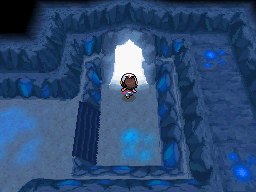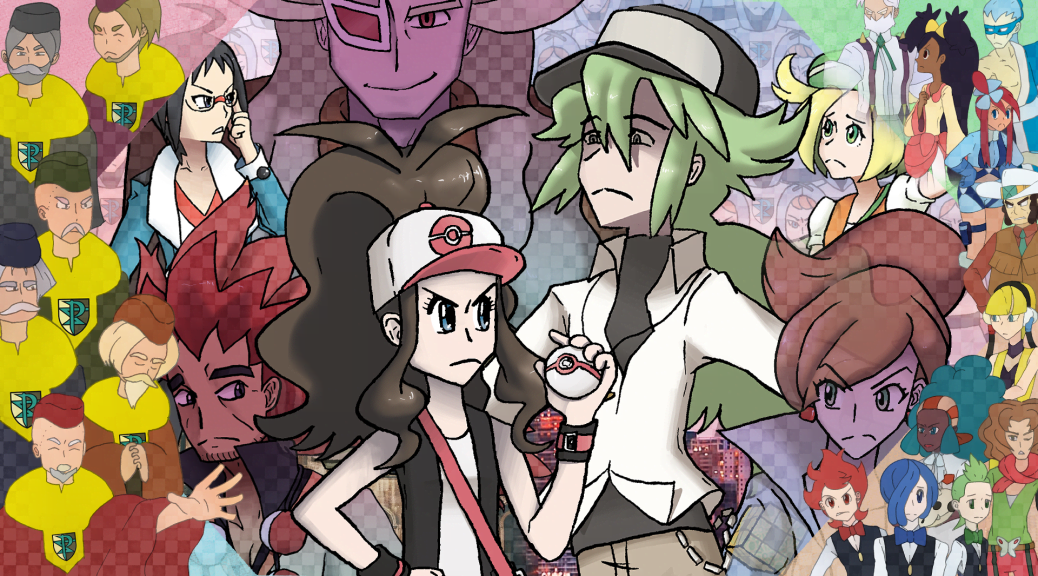Part II: The Chapters of Unova
For the anniversary of the release of Pokémon Black and White, we continue our tribute to the games. Part II focuses on the main storyline and its synthesis of narrative and gameplay.
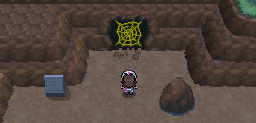
Part II: The Chapters of Unova
Beginnings | Foundations | Castelia | Nimbasa | Driftveil | Chargestone | Icirrus
Dragonspiral | Reshiram & Zekrom | Relic Castle | The Stone | Opelucid | The League | N’s Bridge | The Sages
N’s Room | The End | Beginnings (Redux) | Kyurem | The Ruins | The End (Redux) | Champions
It’s Allegory, my Dear Wattson
Caves are mysterious, dark, concealing. Caves are also safe, a refuge.1 But safety comes at a cost—if one is too isolated or sheltered, kept away from the rest of the world, they will stay safe, but can never grow. Bianca understands this all too well, after her father tried to keep her from going on her journey out of concern for her safety. Ultimately, one must leave their cave to really understand the world.
The ancient Greek philosopher Plato included his famous allegory of the cave in his work Republic. The allegory is a concept that explores “the nature of belief versus knowledge.”2 In the allegory, a group of people have spent their entire lives chained in place in a cave, and all they can see are shadows of things, cast by all sorts of objects before a fire, the only light source within the cave. They cannot see the fire, nor the original objects themselves—their entire truth lies in the shadows they see.3 Even if one were to somehow break free of their chains and escape to the outside world, the light would be so bright that they couldn’t even see at first—just like how someone faced with an opposing worldview would need time to get accustomed to it before understanding it.4
When you enter Chargestone Cave, you catch a glimpse of N off in the distance. You do not yet know from what cave he has come, but so far he has been dead-set on his beliefs, turning away those that don’t align with his goals. Will this time be any different?
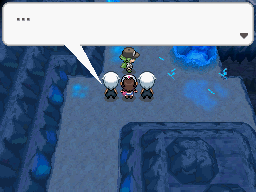 As you approach him, two figures appear from the shadows. They order you to come with them, and, walking as fast as N speaks, escort you to N’s side. They inform N that they have brought “the one [he] wanted” and melt once again into shadow. N turns to face you and raises his arms as he addresses you. He says those two were a part of the “Shadow Triad,” a group Ghetsis “enlisted” into Team Plasma. To have recruited shady figures like that, almost ninja-like, with inhumane speed… Perhaps Cheren was onto something when he said Ghetsis isn’t all that he seems to be. What is the truth behind these strange shadows—what is the truth behind Ghetsis, the man who puts up fronts so that you see only what he wants you to see?
As you approach him, two figures appear from the shadows. They order you to come with them, and, walking as fast as N speaks, escort you to N’s side. They inform N that they have brought “the one [he] wanted” and melt once again into shadow. N turns to face you and raises his arms as he addresses you. He says those two were a part of the “Shadow Triad,” a group Ghetsis “enlisted” into Team Plasma. To have recruited shady figures like that, almost ninja-like, with inhumane speed… Perhaps Cheren was onto something when he said Ghetsis isn’t all that he seems to be. What is the truth behind these strange shadows—what is the truth behind Ghetsis, the man who puts up fronts so that you see only what he wants you to see?
N turns to tell you that you have been chosen, and asks if that surprises you. He understands if so—new information is always surprising, just as seeing light for the first time would be surprising and literally blinding. If you say no, he scoffs. If you don’t understand what he means, there’s no way you would be surprised—in other words, you’re not comprehending new information as you remain ignorant within your own cave. N continues to explain that he “told Ghetsis about you and your friends,” and Ghetsis, the frightening man he is, researched the three of you with help from the Shadow Triad.
“Cheren is pursuing the ideal of strength. Poor Bianca has faced the sad truth that not everyone can become stronger. And you are not swayed either way—more of a neutral presence. Which is apparently a good thing,” N says. Cheren and Bianca are opposites as stark as black and white, while the player, neutral, completely clear and unswayed, stands between them. Where does N stand on this spectrum?
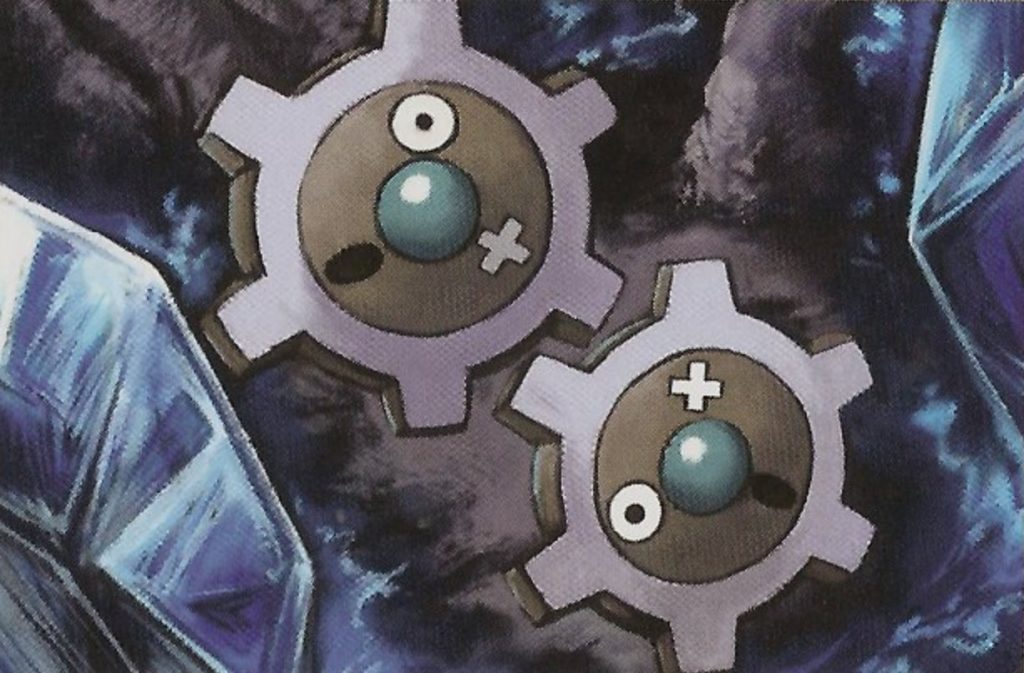 N informs you that Team Plasma will be just up ahead, and that “Ghetsis wants to see what kind of Pokémon Trainer you really are.” But you will soon discover Ghetsis is nowhere to be found in this cave. The shadows he controls will surely deliver to him whatever information he desires. N continues ahead, and as you follow after him, you first encounter not Team Plasma but Bianca, accompanied by Professor Juniper. The professor notes that her father—someone you aren’t acquainted with yet—requested she research the gear-like Pokémon Klink, which can be found in the cave. Later Juniper explains that although Chargestone Cave has existed “since the distant past,” the Klink species has only existed for around a measly hundred years. Juniper insists that if she can uncover where Pokémon come from and where they go to, people and Pokémon “can get along even better.”
N informs you that Team Plasma will be just up ahead, and that “Ghetsis wants to see what kind of Pokémon Trainer you really are.” But you will soon discover Ghetsis is nowhere to be found in this cave. The shadows he controls will surely deliver to him whatever information he desires. N continues ahead, and as you follow after him, you first encounter not Team Plasma but Bianca, accompanied by Professor Juniper. The professor notes that her father—someone you aren’t acquainted with yet—requested she research the gear-like Pokémon Klink, which can be found in the cave. Later Juniper explains that although Chargestone Cave has existed “since the distant past,” the Klink species has only existed for around a measly hundred years. Juniper insists that if she can uncover where Pokémon come from and where they go to, people and Pokémon “can get along even better.”
Deeper along in the cave, the Shadow Triad appears yet again to hurry you along a bridge. They inform you that Team Plasma awaits downstairs and take their leave yet again. Descending further into the cave, Team Plasma Grunts stand guard. They spout their usual arguments, some far too aggressive for what they want to achieve, others far more reasonable and genuine in their logic. But even further into the cave, some regular Trainers begin to crop up. One in particular, an Ace Trainer named Allison, wonders that, because “Some Pokémon like to live in this electrified cave… Don’t you think that people should stay out?” Generic Trainers such as Allison here greatly contribute to Team Plasma and Black and White as a whole because they enforce that not everything is so clear cut. Just as there are some real animals that are domesticated and make wonderful pets, some animals are not fit for house life, and not every acre of wilderness is meant to be encroached upon by humans. Sure, Team Plasma doesn’t necessarily have to separate people from Pokémon entirely, but is it wrong to think some places should be off limits to humans to preserve them?
N stands before the cave exit. As you approach, he wastes no time in speaking his mind:
“Many different values mix together, and the world becomes gray… That is unforgivable! I will separate Pokémon and people, and black and white will be clearly distinct! Only then will Pokémon become perfect beings! Yes, that is my dream! That is the dream I must fulfill! [Player], do you have a dream of your own?”
The values of which N speaks refer not only to moral values, but color values, of which black and white have been assigned moral significance by society at large. Who decides which morals are “black” and which are “white?” Who decides what is “right” and “wrong,” and should we follow them without question? Is it right for people to use Pokémon in battle just because that’s how things have always been? As N admits his dream to you, he asks if you, too, have a dream, and you are given the chance to answer. Your choice here impacts dialog later in the game, and generally “Yes” is the best choice—after all, you do need a dream to strive towards to keep you going. “What do you fight for? No, what do you live for?” as a Team Plasma Grunt had asked earlier. If you tell N that no, you do not have a dream, he curses that without a dream, you can never understand him, and he will crush your weak will here and now. However, if you assure him that yes, you do have a dream, N is pleased, and ensures that he will “learn just what kind of dream you have—in battle!”
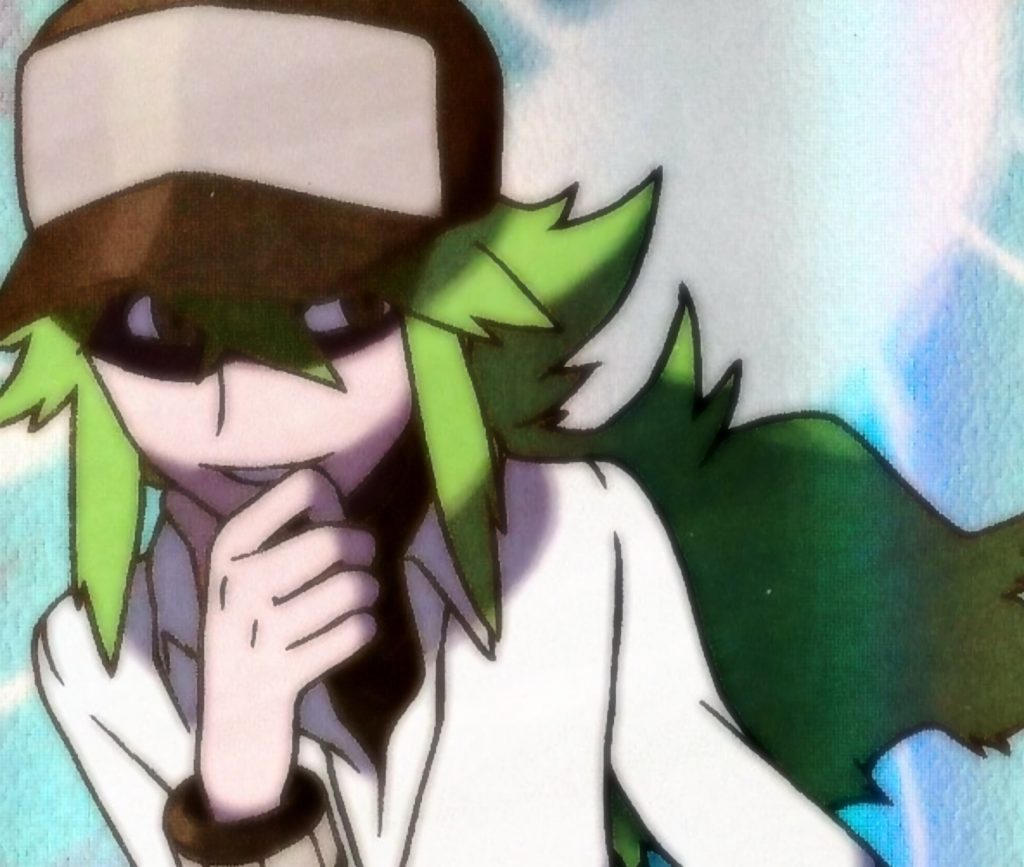
N‘s team is entirely new yet again, comprised of Pokémon found in the cave. It’s clear now that he’s releasing his Pokémon after each battle, holding true to his beliefs that Pokémon should not be contained. During the confrontation, N asks if you believe that battles “help us understand one another.” At first glance it may seem that “us” represents people understanding other people—fitting, as N claims to be using this battle to learn about your dream. But it may also be in regards to people and their own Pokémon. These are both areas in which N must learn, because despite hearing the voices of Pokémon, his knowledge of how they behave alongside people is clearly very limited—and it seems as though N’s understanding of people is similarly very limited. In a way, this “us” refers to both people and people, and people and Pokémon. N, in this moment, wants to understand you, but is still struggling to accept that Pokémon, on average, do enjoy battle. Not only do your Pokémon enjoy being by your side, but considering N’s love for Pokémon and how he fights for their sake, it’s not hard to believe that his own temporary teammates feel the same about him. Imagine the confusion running through N’s mind as he battles alongside his friends, and as he’s releasing them, they cry out to him that they don’t want to go—that they want to stay by his side just as your Pokémon happily stick by yours. Will this battle give him any answers or closure?
Perhaps not yet. Once defeated, N determines that “My friends getting hurt… That’s what a Pokémon battle is.” It leads one to wonder if the risk is worth the reward—if there’s no chance of winning, is there a reason to battle, to get your Pokémon hurt? You and your Pokémon will still grow from the experience, and you may make a new friend with the opposing Trainer, but for N, who believes it is never acceptable for Pokémon to be hurt, the fact that someone loses—that someone’s Pokémon gets hurt for “nothing”—is exactly why Pokémon must be separated entirely from people. And indeed, N mocks the idea of battle, calling them “meaningless” and deducing that he could never pursue his ideals or the truth through them.
“As if that could make me worthy to become friends with the legendary Pokémon!” he exclaims. Although he thinks his losses may have something to do with how he feels bad about being a Trainer—a necessary evil until he can change the formulas of the Pokémon world—he’s not entirely wrong here. Just as Bianca can achieve personal goals and live a fulfilling life without being a “strong Trainer,” N’s pursuit of his goals and the hope to “become friends with” the founding dragon of Unova may not actually be tied to his strength or number of victories as a Trainer. Rather, it may be tied to the state of his heart.
Bianca and Professor Juniper catch up to you, Bianca excited to be in the cave’s home stretch and Juniper curious as to who’s with you. Although she doesn’t recognize him, N knows who Juniper is. “Professor Juniper, what are you thinking?” he demands. “You appear to have no qualms about the relationship between Pokémon and people. You put Pokémon into categories using arbitrary rules and think you can understand them like that… The very idea of a Pokédex revolts me. What do you have to say for yourself?”
Juniper is a bit taken aback. “Oh, my. Looks like you’re not my biggest fan. Your opinion is understandable. It happens to be different from mine, which is equally understandable,” Juniper explains. “How about if all people get to decide for themselves how to relate to Pokémon?”
Naturally, both parties here are simultaneously correct and incorrect. Categorizing and researching Pokémon, like animals, brings us closer to scientifically understanding them as a species. It can help people understand how to keep them safe and healthy. But it doesn’t account for individual interests, hopes, and dreams. Knowing how to properly care for cats does not mean you understand the unique interests of even a single cat. And while allowing individuals to decide for themselves how they can “relate to Pokémon” works in concept, in execution it fails: just look at how the “bad apples” of Team Plasma relate to Pokémon. Think back to Team Galactic’s relation to Pokémon, abusing and forcefully extracting gems attached to Mesprit, Uxie, and Azelf’s bodies to create the Red Chain. Sure, players can put a stop to them, but it will always be too late, as abuse cannot be undone. Memories always remain, and while time claims to heal all wounds, there exist even more drastic cases that can never be reversed, such as Team Rocket’s murder of an innocent Marowak. Juniper’s ideas are sound, but clearly need more rules applied to them—rules that the world currently does not have, and as a result, evil teams such as these are able to crop up in each and every Pokémon game.
Of course, N knows this. “You’re saying I should just allow people to think whatever they want and treat Pokémon however they want, no matter whether the Pokémon suffer?” he retorts. “I refuse to tolerate the existence of a world like that!” With this declaration, he storms out of Chargestone Cave. Although N’s argument is sensible, his inability to consider that there’s any truth to what Juniper says solidifies his resolve in his goal—like Cheren, his beliefs are too firmly rooted for him to accept other viewpoints, even just a little. N may have physically left Chargestone Cave, but he is still shackled in his metaphorical cave.
Juniper, however, is surprisingly understanding of this. “Well, I didn’t expect him to change his mind right away. But I hope he’ll spend a little time trying to understand how others feel.” At this, Juniper informs you that she’ll continue to collect more research. “For Pokémon and people to get along better, we need to take steps to learn more about them!” Although Juniper hasn’t yet accounted for N’s legitimate concerns, she rightfully recognizes that it’s humans who must put in the legwork to better understand Pokémon and treat them right.
Bianca sticks with Juniper, proudly proclaiming to be her “bodyguard.” This leaves you to ruminate on this encounter for the last few steps of Chargestone Cave. The person who even allowed you to go on this life-changing adventure to begin with is only partially right, while the man who insists on changing everyone’s entire way of living has some good points up his sleeve, too. As you step out of the cave, will you consider both their points as you make your way into the blinding light, or only side with one? Or will you perhaps remain a more neutral presence, as N described? Of your major influences, one has seen some of the light but currently searches through the cave for more answers, while the other is bathed in light but mentally remains inside his cave—his prison. You take your steps outside to try and see for yourself.
